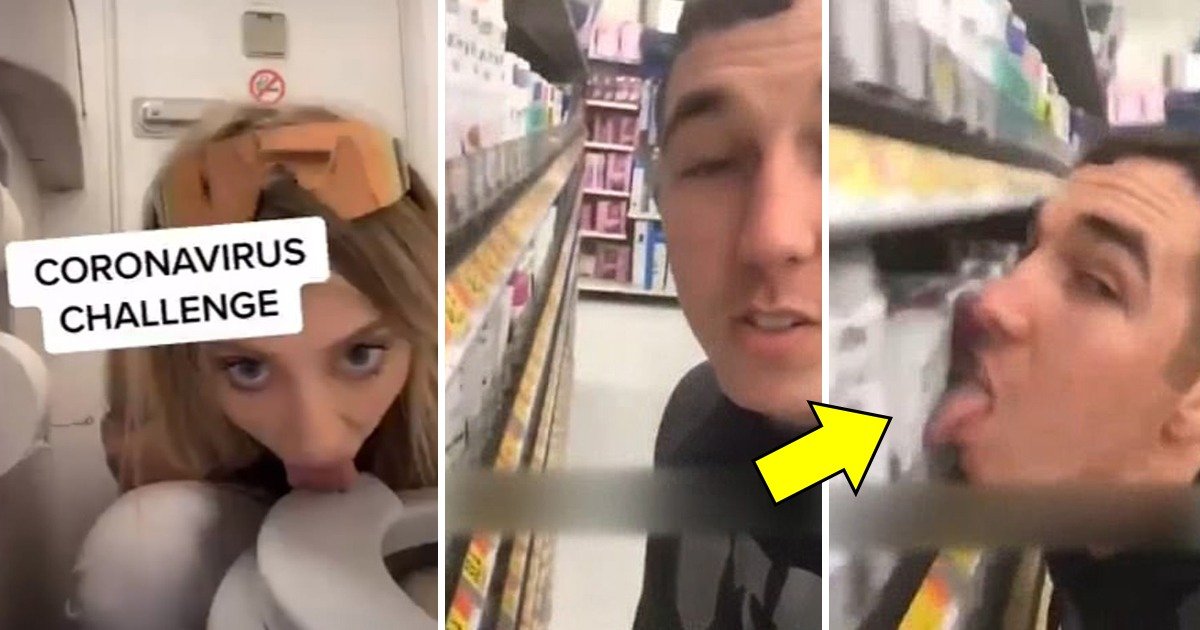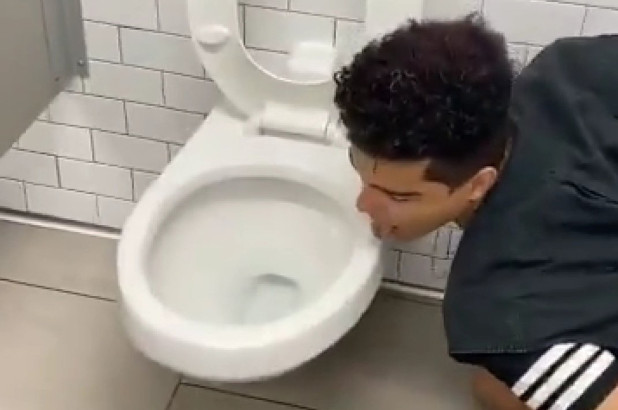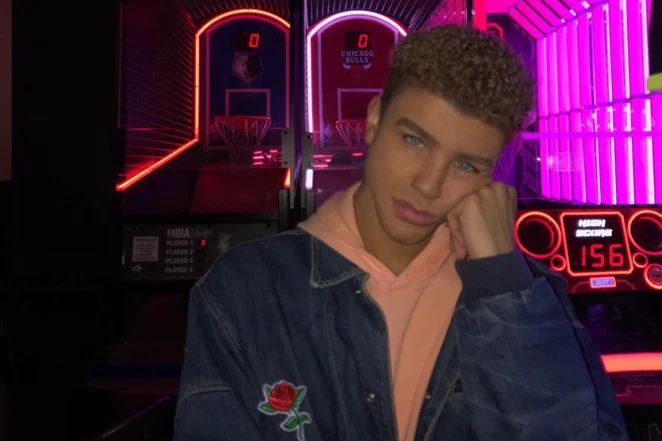A man from California who filmed himself licking a toilet bowl for the notorious TikTok‘ coronavirus challenge’ has now been infected with the deadly virus.
Larz, 21, who brands himself as an‘ influencer’ has contracted coronavirus just days after posting a video of himself licking a toilet bowl for a revolting TikTok competition dubbed the‘ coronavirus test‘.
In a tweet that has since been removed, the 21-year-old wrote: “I screened positive for Coronavirus .”
This comes just two days after the prankster, who goes by GayShawnMendes ‘ social media username, uploaded a video himself on Friday dragging his tongue around a public bathroom as part of a bizarre — and heavily mocked— social media “Coronavirus Challenge.”
The trend which is seen mainly on TikTok, a website for video sharing— spurs people to share videos of themselves licking everything from toilets to grocery stores.
It really wasn’t clear whether the obvious contamination of Larz was related to the stunt.
More than 21,000 people worldwide have died from the COVID-19 pandemic at the time of writing.
Good Morning Britain host Piers Morgan dubbed Larz’ scum’ and said that it was’ karma’ that he contracted the infection.
Morgan said earlier this morning:’ Karma is a strange phenomenon. If you act in such a rash, moronic, selfless way, then fate will eat you up.
I’m not getting much fun, I don’t want people to get hurt, so it needs to end. Those rash acts of insanity. Would the man who was cleaning the toilet bowl touch anyone else?’
Larz also featured on Dr. Phil with another influencer, Bľ Kall, 20, as they explored how they licked ice cream tubs and spit mouthwash back into the bottle in viral videos.
This comes following a alarming wave of similar outbreaks around the US with younger generations criticizing coronavirus via social media and earning’ clout.’
Although reports from China, the country initially affected by a large epidemic, showed that younger people were not at hazard from the virus as much as older adults, so far the number of cases in the U.S. shows that all young people might not be as free from severe health problems as they first thought.





